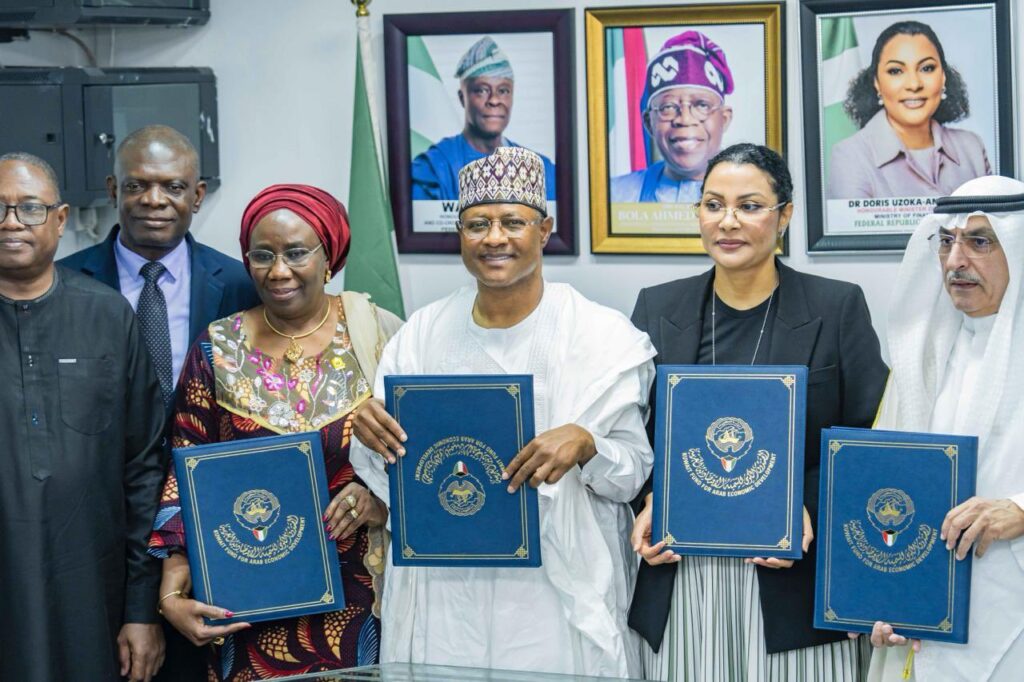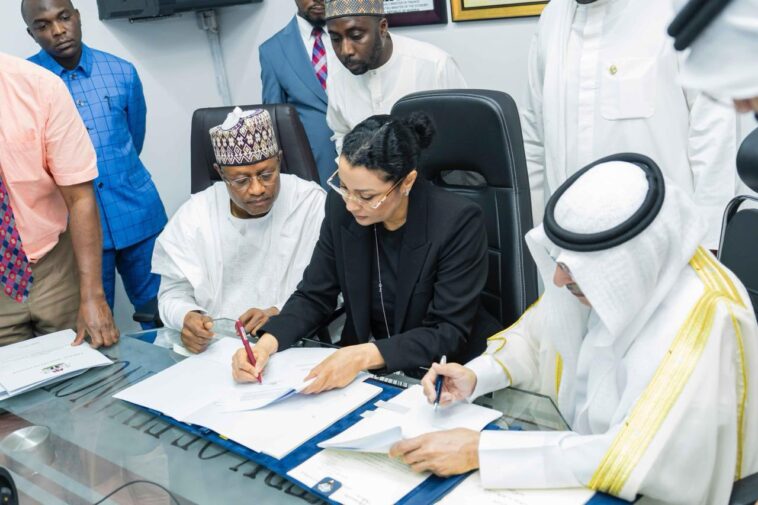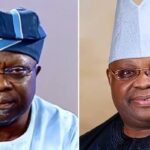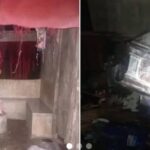The Federal Government of Nigeria has entered into a $62.8 million Memorandum of Understanding (MoU) with the Kuwait Fund for Arab Economic Development (KFAED) to support the Reaching Out-of-School Children (ROOSC) initiative in Kaduna State, marking the Kuwait Fund’s first-ever intervention in Nigeria.
The landmark agreement, signed in Abuja, was witnessed by Kaduna State Governor, Senator Uba Sani, who described it as a “historic step forward” in the drive to reintegrate millions of out-of-school children across the country.
“I had the honour of witnessing the signing of a $62.8 million Memorandum of Understanding between the Federal Government of Nigeria—through the Ministry of Finance—and the Kuwait Fund for Arab Economic Development for the Reaching Out-of-School Children (ROOSC) project in Kaduna State,” Governor Sani said in an official statement.
“This historic agreement marks Kuwait Fund’s first intervention in Nigeria and represents a significant step forward in our efforts to expand access to education.”

The MoU was signed on behalf of Nigeria by the Minister of State for Finance, Dr. Doris Uzoka-Anite, while H.E. Dr. Waleed Al-Bahar, Director General of KFAED, signed for the Kuwait Fund.
A Boost for SDG 4 in Nigeria
The ROOSC project, a multi-partner initiative, is designed to address Nigeria’s out-of-school population—estimated at over 18 million children—by creating sustainable and inclusive education systems that are aligned with Sustainable Development Goal 4 (SDG 4).
According to Governor Sani, the project will deliver 102 climate-resilient schools and rehabilitate 170 learning centres across all 23 Local Government Areas in Kaduna State. It places strong emphasis on inclusive education, especially for girls, children with disabilities, and internally displaced children.
“Kaduna State has met 100% of its counterpart funding obligation. The project will deliver 102 climate-resilient schools and rehabilitate 170 learning centres… focusing on school safety, inclusive learning environments, and the reintegration of marginalized children,” the governor stated.
Kaduna’s Commitment to Education
Governor Sani also outlined his administration’s investments in education since assuming office in May 2023. He revealed that:
- 25% of Kaduna’s 2024 budget was allocated to education, increasing to 26.14% in 2025.
- 60 new secondary schools have been built.
- Over 1,049 classrooms have been renovated.
- Tuition fees in state-owned tertiary institutions have been slashed by 50%.
Three modern vocational institutes have been established under the Federal Government’s Technical and Vocational Education and Training (TVET) policy.
Global Partnerships Fuel the ROOSC Project
Governor Sani extended appreciation to the coalition of development partners driving the ROOSC agenda forward, including:
- Kuwait Fund for Arab Economic Development (KFAED)
- Islamic Development Bank (IsDB)
- Global Partnership for Education (GPE)
- Education Above All Foundation
- Save the Children International
- UNICEF
He also commended the Federal Ministry of Finance and the Federal Ministry of Education for their roles in facilitating the project.
“Kaduna remains fully committed to transparent, accountable implementation as we work to ensure quality education for every child,” Governor Sani concluded.





